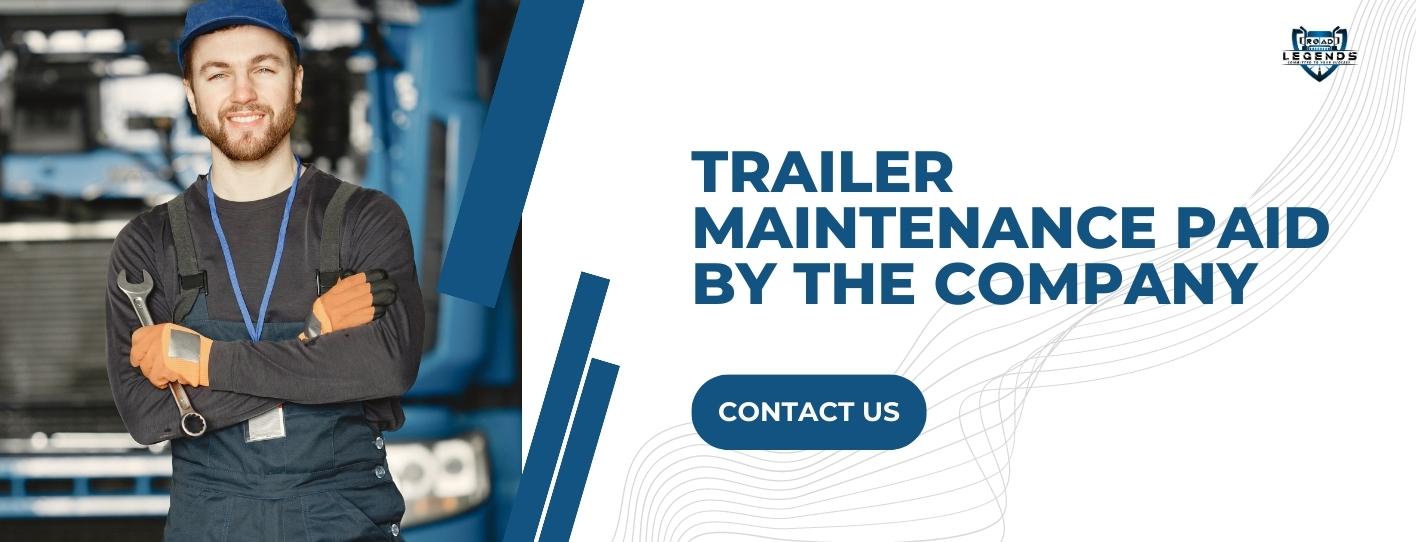
All You Need to Know About a Trucking Dispatcher
In the world of transportation and logistics, where each mile and minute matters, there exists a secret legend in the background - the trucking dispatcher. They are the unrecognized architects of efficient cargo movement and the problem solvers of the open road. In moving goods from point A to point B, the solution is a trucking dispatcher.
But have you ever wondered if there's a tool that can complement the skills of a trucking dispatcher? The answer is yes. A route planner can help to revolutionize how you plan and execute your logistics operations.
So, if you are a seasonal trucking professional hoping to gain insights, this article is your one-stop destination for understanding the heart and soul of dispatching. From defining the dispatcher's role to understanding why they are the linchpin of logistics, we'll equip you with everything you need to see their essential contribution.
What is a trucking dispatcher?
A trucking dispatcher is an unrecognized yet genuinely great department for the transportation and logistics industry. At its core, this role is all about dealing with the movement of goods from one point to another.
Dispatchers are the central nervous system of a trucking operation, liable for planning and enhancing the movement of trucks and freight. Consider them the air traffic regulators of the road, directing trucks to their destinations proficiently and securely.
However, the responsibilities of a trucking dispatcher are multi-layered, as they are essential. Dispatchers are entrusted with planning shipments, assigning routes to truck drivers, and checking the progress of each delivery. They cordinate with drivers, clients, and partners to give continuous updates and resolve any issues that might emerge during travel.
With effortlessness and quick thinking, they also handle difficulties, such as traffic delays, mechanical breakdowns, or unfriendly atmospheric conditions. Generally, they are issue solvers, guaranteeing that products show up on time and intact.
To succeed as a trucking dispatcher, vital organizational skill is necessary, as dispatchers handle multiple tasks simultaneously. Effective communication skill is also crucial for conveying clear and prompt information to drivers and clients. Flexibility is one more essential trait, as dispatchers have to deal with the unpredictable nature of the road.
Trucking dispatchers have a unique mix of calculated intuition, critical thinking ability, and the capacity to remain calm under tension.
Why are trucking dispatchers important?
The role of trucking dispatchers is an important element that keeps the wheels turning and the supply chain flowing. This section focuses on why dispatchers are important for efficient and cost-effective logistics operations.
- Smooth logistics operations: Trucking dispatchers act as a vital part of logistics, guaranteeing the seamless flow of goods from beginning to end customer. They carefully plan routes, allot assets, and coordinate schedules, ensuring deliveries arrive on time. This coordination limits interruptions, keeps up with consumer loyalty, and maintains an organization's reputation for reliability.
- Efficiency in routing: Dispatchers have an inside and out understanding of geological subtleties and traffic patterns. By utilizing this information, they are able to streamline routes to limit travel time and fuel utilization. This lessens operational expenses and adds to a greener and more sustainable supply chain.
- Resource allocation: This means dispatchers use trucks and drivers together efficiently. This makes the most out of what they have. It helps make more money for each vehicle and reduces extra costs which helps the company's profits stronger in the end.
- Problem resolution: Dispatchers are good at solving problems. When unexpected issues like traffic jams or truck problems happen, they quickly find other solutions. This helps prevent delays and keeps delivery schedules on track without causing big problems or extra costs.
- Customer satisfaction: Dispatchers are very important in keeping clients educated and fulfilled. Their capacity to give constant updates and address concerns quickly cultivates positive client connections, which can prompt recurrent business and references.
- Cost savings: Overall, the efficient operations overseen by trucking dispatchers translate to significant cost savings. These savings are financial and encompass reduced vehicle wear and tear and decreased environmental impact through optimized routes and fuel efficiency.
As we've explored their critical role in this section, it's evident that dispatchers are not just facilitators of deliveries but key contributors to the success and sustainability of the entire logistics ecosystem.
How to become a trucking dispatcher?
Starting a job as a trucking dispatcher usually requires a high school diploma or something similar. However, some employers may consider your profile to be stronger if you have more schooling after high school in subjects like logistics, supply chain management, or related.
To do well in this job, people who want to be dispatchers can benefit from learning about the trucking industry. They can go to special truck driver training schools or pick up logistics courses. These programs teach things like planning routes, loading trucks, and using computer programs for trucking.
When people start working as dispatchers, they often begin with basic jobs. As they learn more and show they can do the work well, they might get jobs where they're in charge of planning operations.
If they want to grow in their career, they can get experience in different areas like long-haul trucking moving things that need to stay cold, or things that are dangerous..
In the end, being a good dispatcher in the trucking business can open up chances for people to grow and get better in their work in the changing world of moving things.
Challenges faced by trucking dispatchers
In the dynamic world of trucking dispatching, where time is money and precision is crucial, dispatchers face various challenges that test their abilities and flexibility.
Going on, let us view a portion of the challenges faced by shipping dispatchers:
- Making a good delivery plan when time is short and the demand for deliveries changes can be tough. Dispatchers have to change things like when drivers are available, delivery times, and the best route to take.
- To make sure trucks and drivers are used in the best way, dispatchers have to be on point with different things. They need to move resources around to meet delivery promises while not spending too much.
- Talking to drivers and clients all the time is very important. But it can be hard, especially in faraway places or with drivers who drive for a long time.
- Dispatchers deal with changing road conditions, bad weather, traffic jams, and accidents. These things can mess up plans and cause big problems.
- Unexpected problems, like trucks breaking down or clients asking for deliveries at the last minute, need quick thinking and being able to change plans fast to keep things going well.
- Dispatchers also need to think about driver tiredness, safety, and not having enough drivers. But they still need to have a driver team that works well and is happy.
Overall, dispatchers are the unrecognized yet truly great individuals who tackle scheduling complexities, street vulnerabilities, communication obstacles, and more with unwavering commitment.
Tools and technology for trucking dispatchers
Trucking dispatchers can take advantage of cutting-edge tools and innovation to drive proficiency and accuracy. These trucking equipment and tools envelop a wide range of features, including real-time tracking, route optimization, and load management. They are the main impetus behind a new era of dispatching excellence.
Modern dispatchers, like Transportation Management Systems (TMS), depend on software to improve their operations. TMS software permits dispatchers to effectively plan routes, assign loads, and monitor shipments in real time. These systems offer a comprehensive perspective on the logistics operation, empowering dispatchers to make informed decisions quickly.
Moreover, communication platforms incorporated into TMS software facilitate seamless coordination among dispatchers and drivers, guaranteeing that immediate changes and updates can be imparted. Also, route optimization software, including a free route planner with unlimited stops, empowers dispatchers to create the most efficient routes for drivers, diminishing fuel utilization and reducing delivery times. These tools generate valuable data and analytics, enabling dispatchers to make data-driven decisions.
Also, do not miss to check how Artificial Intelligence is transforming the trucking industry.
Implementing tools and technology for trucking dispatchers fosters a more agile and responsive system that eventually benefits businesses and consumers simultaneously.
Tips for trucking companies working with dispatchers
Powerful collaborative effort between trucking companies and dispatchers is crucial to the success of any logistics operation. Here are a few tips to cultivate a harmonious and productive working relationship:
- Keep up with clear and open lines of communication between dispatchers, drivers, and executives. Encourage regular updates and feedback to remain informed about progress and challenges.
- Plan regular gatherings or check-ins to discuss ongoing operations, challenges, and opportunities for improvement. These meetings help identify and resolve issues proactively.
- Lay out well-defined roles and responsibilities regarding both dispatchers and drivers. Ensure everybody grasps their specific obligations and expectations.
- Trust your dispatchers to make decisions progressively, mainly when unexpected difficulties arise. Engage them with the authority to make necessary changes while remembering the organization's objectives.
- Leverage innovation like transportation management systems (TMS) to enhance communication and enhance route planning. A common platform can smooth out tasks and facilitate ongoing updates.
- Encourage cooperation and joint effort among dispatchers, drivers, and other colleagues. Perceive and celebrate victories together to lift everyone's spirits and inspiration.
By executing these tips, trucking companies can foster a strong working area relationship with dispatchers, prompting smoother operations, improved effectiveness, and overall success in the logistics industry.
We got your back with all the trucking dispatcher info…
As we come to an end of our discussion, it is clear that a trucking dispatcher is the heartbeat of the logistics industry. Their dedication and hard work for a smooth supply chain process and flow of products make them imperative in the industry.
Make sure to make the most of technological tools and essential training programs to ease your journey as a trucking dispatcher.
For the rest, good luck with your trucking dispatcher career!

The “Hidden” Paycheck: How Fuel & Maintenance Support Shape Real Net Pay
Learn how fuel costs, maintenance planning, and equipment efficiency impact real net pay in trucking and why the “hidden paycheck” matters in lease purchase programs.

Percentage vs. CPM: How to Choose the Right Pay Plan at Road Legends
Learn the difference between percentage pay and CPM in trucking. Understand break-even points, income stability, and how to choose the right pay plan for your driving style.

What Is a Walk-Away Lease in Trucking? The Advantage Most Drivers Miss
Learn what a walk-away lease in trucking is, how it differs from traditional lease purchase programs, and why many CDL-A drivers choose flexibility over long-term debt.

